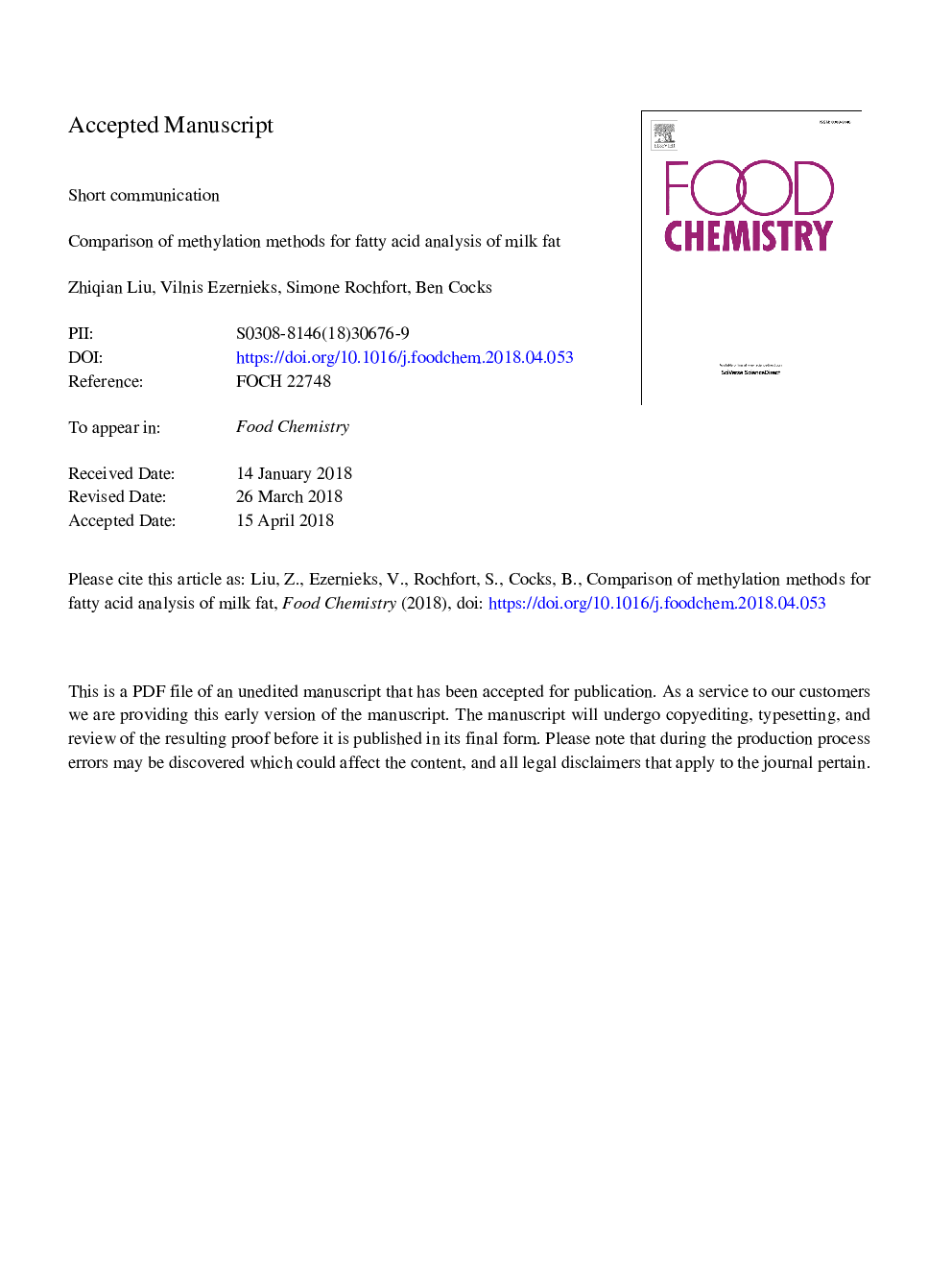| Article ID | Journal | Published Year | Pages | File Type |
|---|---|---|---|---|
| 7584977 | Food Chemistry | 2018 | 24 Pages |
Abstract
Three acid- and alkaline-catalysed transesterification methods were compared with the aim to validate a simple yet reliable protocol for fatty acid (FA) profiling of milk fat. While both the acid- and alkaline-catalysed methods were able to convert completely triglycerides and phospholipids into fatty acid methyl esters (FAMEs), the acid catalyst caused significant degradation of conjugated linoleic acid C18:2c9t11 at high temperature. Although a milder temperature can mitigate this negative impact, a long reaction time (2â¯h) is required to achieve full methylation. By contrast, despite being unable to methylate free fatty acids (FFA), the alkaline-catalysed transesterification yielded comparable results for all major FA due to the very low level of FFA in milk. The alkaline-catalysed methylation is benign for C18:2c9t11. We recommend here a simple one-step protocol based on 0.2â¯M methanolic KOH, a short reaction time (20â¯min) and a mild reaction temperature (50â¯Â°C) for milk FAME preparation.
Keywords
Related Topics
Physical Sciences and Engineering
Chemistry
Analytical Chemistry
Authors
Zhiqian Liu, Vilnis Ezernieks, Simone Rochfort, Ben Cocks,
